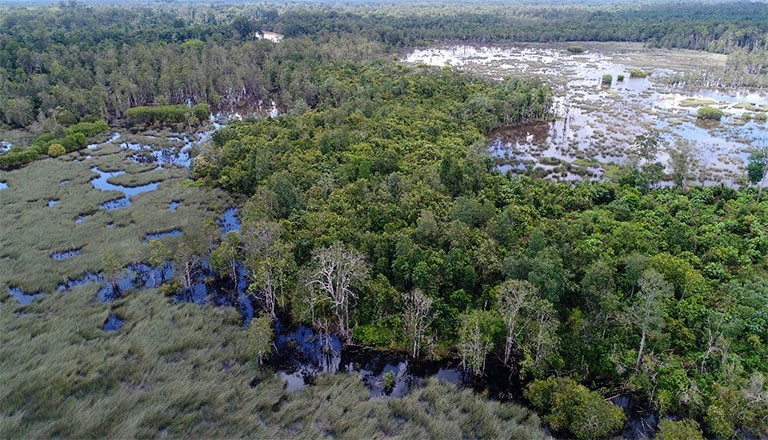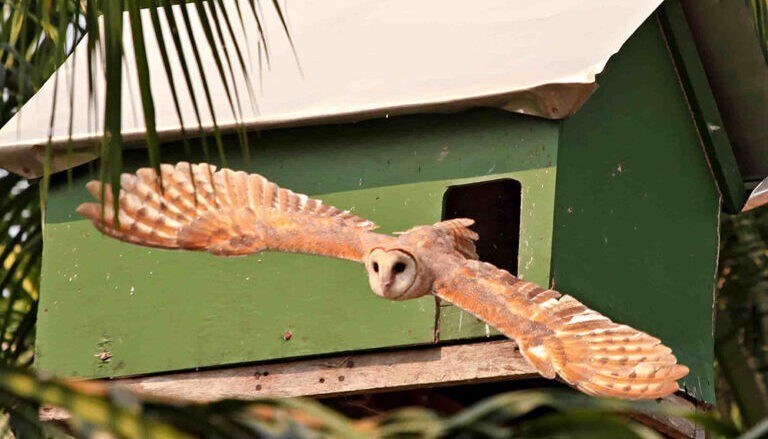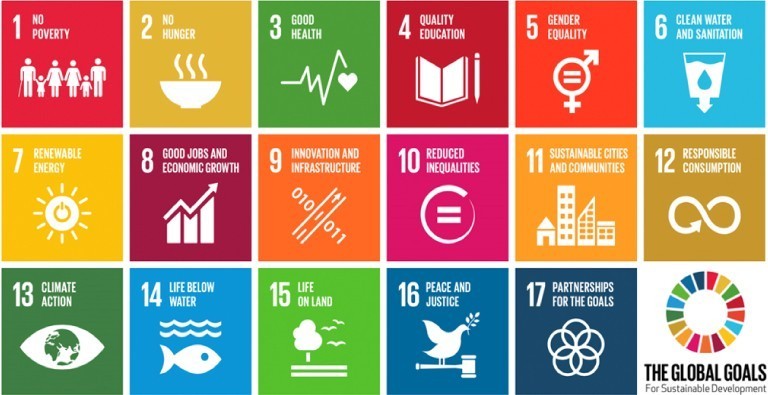UP Group is committed to conserving jungle reserves and wildlife sanctuaries as well as promoting green corridors. UP has collaborated with Copenhagen Zoo since 2007 to set up a Biodiversity Department to facilitate the biodiversity and conservation project. Many exciting and inspiring stories have arisen from this collaboration through ongoing monitoring of species and data collection.

Conservation & Partnership
Over the past century, United Plantations Berhad has spearheaded the way towards sustainable palm oil of high quality. Our dedication to sustainable palm oil growth is shown in our implementation of best management practices, targeted at preventing or reducing any form of pollution whilst at the same time focusing on productivity and production efficiencies. We embrace the latest innovations and strive to remain as a leader within sustainable palm oil production.

Peat Management

Energy Management

Integrated Pest Management (IPM)

Zero Waste
In UP, we monitor the total amount of greenhouse gases including carbon dioxide and methane that are generated throughout our operations. Since 2004, we have collaborated with independent consultants from Denmark (2.0-LCA Consultants) to conduct Life Cycle Assessment (LCA) study on the “cradle to grave” production of 1 MT of refined palm oil. Our on-going commitment and investments to this important area has resulted in a reduction of UP’s GHG emissions of approximately 60% (with iLUC and nature conservation) between 2004-2024. With more initiatives and further investment between 2021- 2025, our internal goal is to reduce UP’s Carbon Footprint per MT of refined palm oil produced by 66% before the end of 2030 when compared previous 2004 levels (with iLUC and nature conservation).

Carbon Footprint Initiatives
These commitments are incorporated in our Environment and Biodiversity Policy as well as our Human Rights Policy of UP. We ensure our employees, contractors, suppliers (including direct and independent/third party), trading partners, scheme smallholders (plasma) and associated stakeholders live up to these commitments.
The overview of our NDPE commitments are as follows:

- No primary forest clearing policy was implemented since 1990
- Zero burn policy including for land preparation during replanting was implemented since 1989
- No development on High Carbon Stock (HCS) Forests and High Conservation Value (HCV) areas.
- We strive to maintain an open and dynamic approach towards continuous improvements in respect of conservation in HCV, HCS areas and reduction of greenhouse gas (GHG) Emissions.
- We ensure No Deforestation and No New Development on Peat within our operations.
- Not to operate or develop within international or nationally designated protected areas
- Open burning is strictly prohibited.
- Capturing, poaching and hunting of native tree species and animal, especially Endangered, Rare and Threatened species are prohibited.

- No new development on peat regardless of its depth since 2010.
- Best Management Practices for existing plantations on peat.
- The management plans are implemented and monitored, which includes but not limited to the following:
- Water Management in Peat Areas
- Weirs for Moisture Conservation
- Monitoring of meteorological parameters using weather stations These provide a large amount of micro-climate information critical to, particularly, make accurate fire-risk predictions.
- Where feasible, explore options for peat restoration by collaborating with the relevant experts.

- Committed to the protection and advancement of human rights including prohibiting retaliation, intimidation and harassment against Human Rights Defenders (HRD), whistleblowers, complainants and community spokespersons.
- Respect and recognise the rights of all employees in line with the Fundamental International Labour Organisation (ILO) Conventions and the UN Declaration on Human Rights, the Rights of Indigenous Peoples and other core values.
- Ensure all personnel are being treated fairly and protected from any form of discrimination.
- Ensure equal opportunities are provided to all personnel regardless of religion, race, age, gender, nationality or physical disability.
- Respect the rights of all personnel to form, join and participate in registered trade unions and to bargain collectively.
- All works are carried out voluntarily including overtime and Work on Day of Rest (WDR) as per the rate stipulated in the Malaysian Employment Act 1955.
- We ensure the living quarters for all workers are in compliance with the “Workers’ Minimum Standards of Housing and Amenities Act 1990”.
- Contract substitution is strictly prohibited.
- All guest workers are allocated individual passport lockers and keys, in a dedicated secured building to which they have free access at all times.
- No worker shall pay any costs related to recruitments to come and work in UP in accordance with ILO Fair Recruitment Guidelines.
- No withholding of wages nor penalty for workers who choose to leave the Company, other than as stipulated in the employment contract.
- Respect the rights of people in communities impacted by our activities.
- Respect land tenure rights as well as recognize duties and responsibilities associated with tenure rights.
- Respect customary or native rights of indigenous and local communities and we commit to Free, Prior and Informed Consent (FPIC) in all negotiations prior to commencing any new operations.
- Resolve all complaints and grievances through an open, transparent and consultative process.
- Support the inclusion of smallholders into the supply chain.
The SDGs are unique as the goals and targets cover all of the key issues affecting us. They reaffirm our international commitment to end poverty, permanently, everywhere. They are ambitious in making sure no one is left behind. More importantly, they involve us all to build a more sustainable, safer, more prosperous planet for all of humanity.

United Plantations Berhad supports the United Nations Sustainable Development Goals (UN SGDs)
As a company with global operations, UP respects and recognizes the importance of its role in this global initiative. As such, the Group has mapped the relevant SDGs with each materiality topic and identified eight (8) UN SDGs with their specific targets that are most relevant to its business operations as well as key concerned materiality topic highlighted by the stakeholders as follows:
| SDGs | Specified Targets | Status | Action Plan |
| SDG 1 –
No Poverty |
1.1 – By 2030, eradicate extreme poverty for all people everywhere, currently measured as people living on less than $1.25 a day | Ongoing | All employees of UP in Malaysia receive at least the minimum wage set by the Malaysian Government (Minimum Wages Order), The average earnings in United Plantations was 50% higher from the current minimum wage. |
| Accommodation is provided free of charge to all workers with potable water supply and electricity at a subsidized rate. | |||
| UP provides annual benevolent payments as well as other compassionate and educational payments/scholarships to the workers via the UP Benevolent Fund. The Benevolent Retirement Scheme was established in 1985 to provide retirement benefits to workers who have loyally served the Group for 10 years and above. | |||
| UP helps smallholders to develop their land, including land preparation, for cultivation of oil palms under the Plasma Scheme. The scheme is expected to provide more opportunities for the smallholders and help alleviate poverty. To date a total of 1,378Ha of Plasma Schemes have been developed. | |||
| SDG 2 –
No Hunger |
2.1 – By 2030, end hunger and ensure access by all people, in particular the poor and people in vulnerable situations, including infants, to safe, nutritious and sufficient food all year round. | Ongoing | The Company facilitates the purchase of rice and sugar at wholesale price for its employees. Cooking oil is supplied to the general employees at a subsidized rate. |
| The orchards with local fruits trees are established in estates for employees and residents’ consumption. The Company also plants coconut palms and fruit trees around the workers quarters for their access and use. Residents are encouraged to plant vegetables in their backyard. | |||
| UP established the Old Folks Home in 1967. The Home caters for the retired and aged employees who are given free boarding, food and medical care with a full-time caregiver. | |||
| SDG 3 –
Good Health |
3.8 – Achieve universal health coverage, including financial risk protection, access to quality essential healthcare services and access to safe, effective, quality and affordable essential medicines and vaccines for all. | Ongoing | There are two (2) Group Hospitals and eight (8) clinics in UP Group with full-time certified Hospital Assistants (HA) and ambulance services. In addition, there are regular visits by the Visiting Medical Officers (VMO) cum Occupational Health Doctor (OHD). |
| Medicines and treatments are provided free of charge to all employees and their dependents as well as the neighbouring communities. | |||
| 3.9 – By 2030, substantially reduce the number of deaths and illnesses from hazardous chemicals and air, water and soil pollution and contamination. | Ongoing | In line with our Company OSH Policy, we are committed to secure the safety and health of our employees at work. Nevertheless, we strive to maintain a safe and healthy working environment for our employees, customers and the public. | |
| Appropriate Personal Protective Equipment (PPE) are provided free of charge to the employees. | |||
| Training on Safe Operating Procedures (SOP) and Hazards Identification, Risk Assessment and Risk Control (HIRARC) are conducted on a regular basis. | |||
| Regular safety audits are conducted by the Company’s Resident Safety Officer to identify any risks, safety non-conformances which are subsequently addressed by the management units. | |||
| Potable water supply is provided to all employees and their dependents on the estates. Domestic water sample analysis conducted by accredited laboratory on a regular basis. | |||
| The implementation of chemical measurement and transfer method by using new Anabranch Liquid Handling System significantly reducing the exposure of chemicals to the chemical mixing operators as well as reducing the soil and waterways contamination during pouring and transferring of chemicals. | |||
| SDG 7 – Renewable Energy | 7.2 – Increase substantially the share of renewable energy in the global energy mix. | Ongoing | All mills in UP Group are equipped with Biogas plants which capture the methane gas produced when palm oil effluents are biodegraded by an array of bacteria thereby producing green energy. This considerably mitigates the Greenhouse Gas (GHG) emissions reducing the impact on climate change. Furthermore, the Electrification Project in one of our mills enables the conversion of biogas to electricity that is exported back to the national grid thereby displacing the need to burn coal. |
| The state-of the-art new refinery, Unifuji utilises renewable energy derived from Biomass generated from the newly established neighbouring Optimill which creates a “circular economy” and best practice within the industry. This complex now operates without the use of fossil fuels significantly reducing the GHG footprint of the Groups operations. | |||
| SDG 8 –
Good job and economic growth |
8.2 – Achieve higher levels of economic productivity through diversification, technological upgrading and innovation, including through a focus on high-value added and labour-intensive sectors. | Ongoing | Our Optimill factory complex and Unifuji not only produces value added palm fractions but also provides employment opportunities for the local communities. |
| The average earning of workers is 80% higher than the minimum wages based on their productivity. | |||
| 8.8 – Protect labour rights and promote safe and secure working environments for all workers, including migrant workers, and those in precarious employment. | Ongoing | UP Group is committed to the protection and advancement of human rights wherever we operate. Our human rights policy is based on our core values on Safety and Health, Environmental Stewardship and Respect for people. | |
| SDG 9 – Innovation and Infrastructure | 9.4 – By 2030, upgrade infrastructure and retrofit industries to make them sustainable, with increased resource-use efficiency and greater adoption of clean and environmentally sound technologies and industrial processes, with all countries taking action in accordance with their respective capabilities. | Ongoing | UP encompasses and amalgamates the most modern equipment and technologies available in the industry embracing the concept of the circular economy. This can be demonstrated through the Company’s investment in the Optimill and a joint venture refinery called Unifuji. |
| The VORSEP Dust Collector System has been installed in all of our mills where the dust emissions have been successfully reduced to the level far below permissible level by Department of Environment (DOE). | |||
| SDG 13 – Climate Action | 13.2 – Integrate climate change measures into national policies, strategies and planning. | Ongoing | By creating a greater environmental awareness and by mapping out areas that contribute negatively towards greenhouse gas emissions the UP Group has through been able to make specific and target orientated green investments that has contributed towards reducing its GHG emissions. For more information, please click https://unitedplantations.com/environment/#Carbon-Footprint-Initiatives |
| Nature tree reserves parks including the Group’s 8,033 Ha of jungle conservation area that has been permanently set aside. UP has effectively cancelled out the negative impact of iLUC on our GHG emissions. | |||
| Throughout the years, additional railway tracks were laid to facilitate crop transportation bringing the total network length to more than 600km. The in-house fabricated 90hp diesel locomotives can efficiently transport up to 180 MT of crop in a single trip, compared to an average 6 tonne payload capacity when using trucks or tractor-trailers. This superior efficiency offers substantial fossil fuel savings and mitigation of GHG emissions. | |||
| Most of the oil palm residues including chipped trunks, fronds, EFB, fibre and shells are effectively utilised and recycled as organic matter back to the fields, in the form of organic mulch in the nursery thereby enriching our soils or as a fuel source displacing the use of fossil fuels whilst adding value to the biomass generated. To further enhance our biomass utilisation, 8 new Biomass Reciprocating Boilers have been built since 2005. | |||
| SDG 17 – Partnership for the Goals | 17.16 – Enhance the Global Partnership for Sustainable Development, complemented by multi-stakeholder partnership that mobilize and share knowledge, expertise, technology, and financial resources, to support the achievement of the Sustainable Development Goals in all countries, in particular developing countries. | Ongoing |
UP and Fuji Oil has agreed to establish a Joint Venture (JV) based on a common goal of a long-term partnership in which unique technologies, sustainable practices and first-class palm oil quality are combined. This JV has materialised into a super modern and efficient setup including a solvent fractionation plant. |
| UP collaborates with Copenhagen Zoo in conducting research on leopard cats, King Cobra, the cultivation and planting of endangered tree species, restoration and rehabilitation initiatives as well as biodiversity conservation. This collaboration was initiated in 2007 and officially established on 1 October 2010, through a Memorandum of Understanding (MOU). |
![]()
UP participates in the Sustainable Palm Oil Transparency Toolkit (SPOTT) assessment conducted by Zoological Society of London (ZSL). SPOTT is designed to measure the transparency of Companies in public disclosures of best practices and sustainability commitments via the RSPO Annual Communication of progress (ACOP), RSPO New Planting Procedures (NPP) Public Notification, Company Annual/Sustainability Report and Company Websites.
The key objectives of the SPOTT assessment is to promote industry transparency and accountability to drive the uptake and implementation of environmental and social best practices in high biodiversity impact sectors. United Plantations Berhad maintains an active engagement and commits to collaborate with the Zoological Society of London (ZSL) in the progress towards improving sustainability reporting and enhancing greater transparency. in 2024, UP took a great leap forward and was ranked as number one (1) in Malaysia and number two (2) of all hundred companies globally with an improved score of 96.1% for our efforts related to environmental, social and governance matters and transparency and public disclosure of our policies.
For further details on SPOTT assessment for palm oil companies, please refer to https://www.spott.org/palm-oil/



